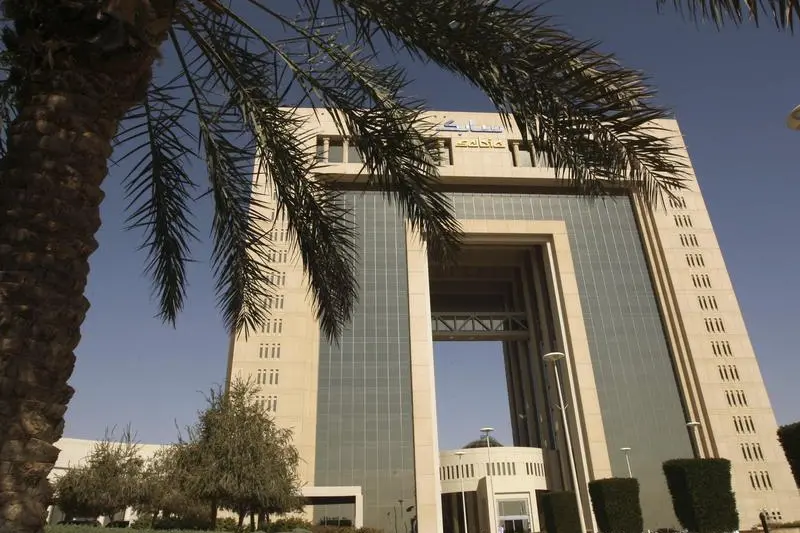PHOTO
* Unprecedented collaboration aims to accelerate OTC develoment
* Proposed project in line with kingdom's transformation plan
By Reem Shamseddine
DHAHRAN, June 28 (Reuters) - State oil giant Saudi Aramco
Aramco and SABIC signed a preliminary agreement to conduct the study on a potential oil-to-chemicals (OTC) project that is in keeping with Riyadh's efforts to reduce dependence on crude export revenues.
Other benefits would be lower costs than those associated with traditional refining methods while reducing the heavy burden of using gas to create petrochemicals at a time when the kingdom is suffering from gas supply constraints.
Yousef al-Benyan, SABIC's acting CEO, told reporters the study would consider aspects including the capacity of the project, its overall size and job creation.
Increased employment is at the heart of Saudi Arabia's massive economic transformation plan announced this month and one industry source said that the project could create as many as 100,000 jobs directly and indirectly.
The overall cost of the project would be indicated by the study, though SABIC has previously said that its own OTC complex at Yanbu could cost as much as $30 billion.
Initial plans for the joint venture focus on the Red Sea city but other areas are being explored, SABIC's Benyan told Reuters on the sidelines of Tuesday's signing ceremony.
UNPRECEDENTED COLLABORATION
Both companies have described OTC as a way to diversify feedstock mix and maximize the value of crude oil, which prompted increased speculation over possible OTC collaboration as state spending comes under pressure from lower oil prices.
Benyan told Reuters that combining the companies' expertise for the first time would create many benefits and accelerate development of OTC technologies, with the proposed project targeted for completion in 2021.
"Unlike in the past, where the two have worked in isolation from each other, this now opens a new chapter for cooperation and coordination and for capturing additional markets in line with vision 2030," said Sadad al-Husseini, a former senior executive at Saudi Aramco.
The OTC project will not use oil products such as naphtha. It is likely to use the lightest grades of crude, Aramco CEO Amin Nasser told reporters, adding that there would be no impact on oil supplies.
Chemicals produced by the complex are currently earmarked for export to Europe and Asia, Benyan said.
The acting SABIC chief added that foreign companies would be encouraged to invest in downstream operations stemming from the main project.
(Editing by David French and David Goodman) ((Katie.Paul@thomsonreuters.com;))
* Proposed project in line with kingdom's transformation plan
By Reem Shamseddine
DHAHRAN, June 28 (Reuters) - State oil giant Saudi Aramco
Aramco and SABIC signed a preliminary agreement to conduct the study on a potential oil-to-chemicals (OTC) project that is in keeping with Riyadh's efforts to reduce dependence on crude export revenues.
Other benefits would be lower costs than those associated with traditional refining methods while reducing the heavy burden of using gas to create petrochemicals at a time when the kingdom is suffering from gas supply constraints.
Yousef al-Benyan, SABIC's acting CEO, told reporters the study would consider aspects including the capacity of the project, its overall size and job creation.
Increased employment is at the heart of Saudi Arabia's massive economic transformation plan announced this month and one industry source said that the project could create as many as 100,000 jobs directly and indirectly.
The overall cost of the project would be indicated by the study, though SABIC has previously said that its own OTC complex at Yanbu could cost as much as $30 billion.
Initial plans for the joint venture focus on the Red Sea city but other areas are being explored, SABIC's Benyan told Reuters on the sidelines of Tuesday's signing ceremony.
UNPRECEDENTED COLLABORATION
Both companies have described OTC as a way to diversify feedstock mix and maximize the value of crude oil, which prompted increased speculation over possible OTC collaboration as state spending comes under pressure from lower oil prices.
Benyan told Reuters that combining the companies' expertise for the first time would create many benefits and accelerate development of OTC technologies, with the proposed project targeted for completion in 2021.
"Unlike in the past, where the two have worked in isolation from each other, this now opens a new chapter for cooperation and coordination and for capturing additional markets in line with vision 2030," said Sadad al-Husseini, a former senior executive at Saudi Aramco.
The OTC project will not use oil products such as naphtha. It is likely to use the lightest grades of crude, Aramco CEO Amin Nasser told reporters, adding that there would be no impact on oil supplies.
Chemicals produced by the complex are currently earmarked for export to Europe and Asia, Benyan said.
The acting SABIC chief added that foreign companies would be encouraged to invest in downstream operations stemming from the main project.
(Editing by David French and David Goodman) ((Katie.Paul@thomsonreuters.com;))





















